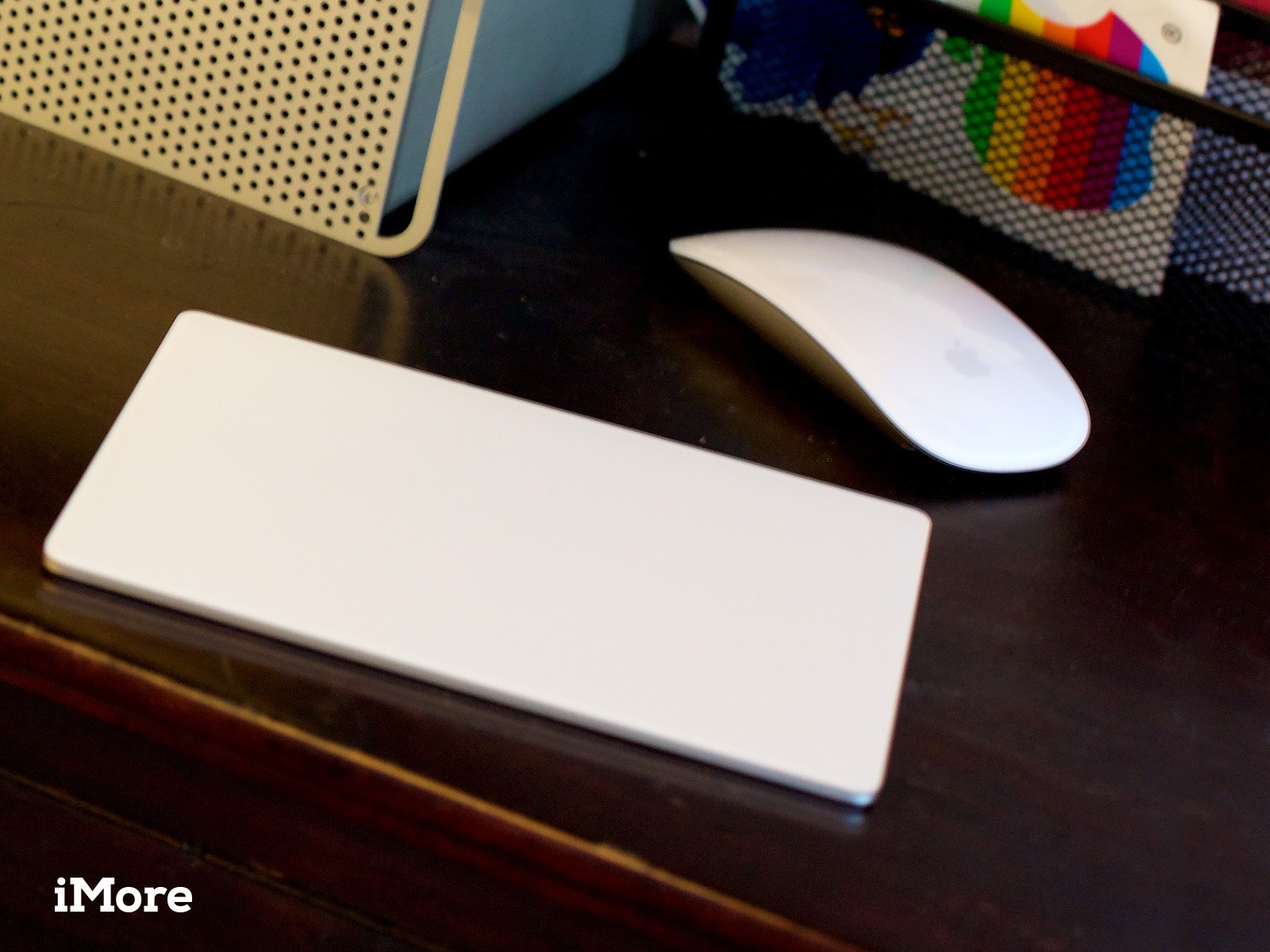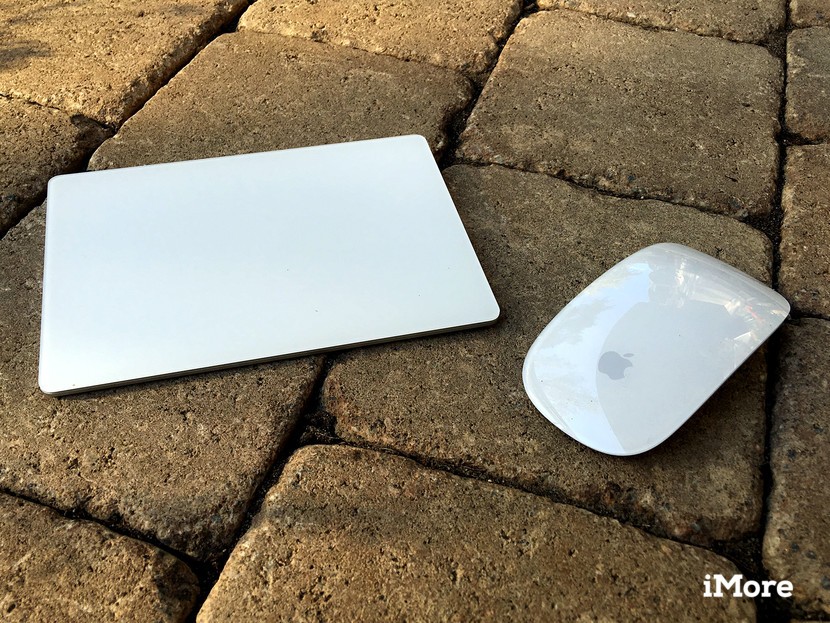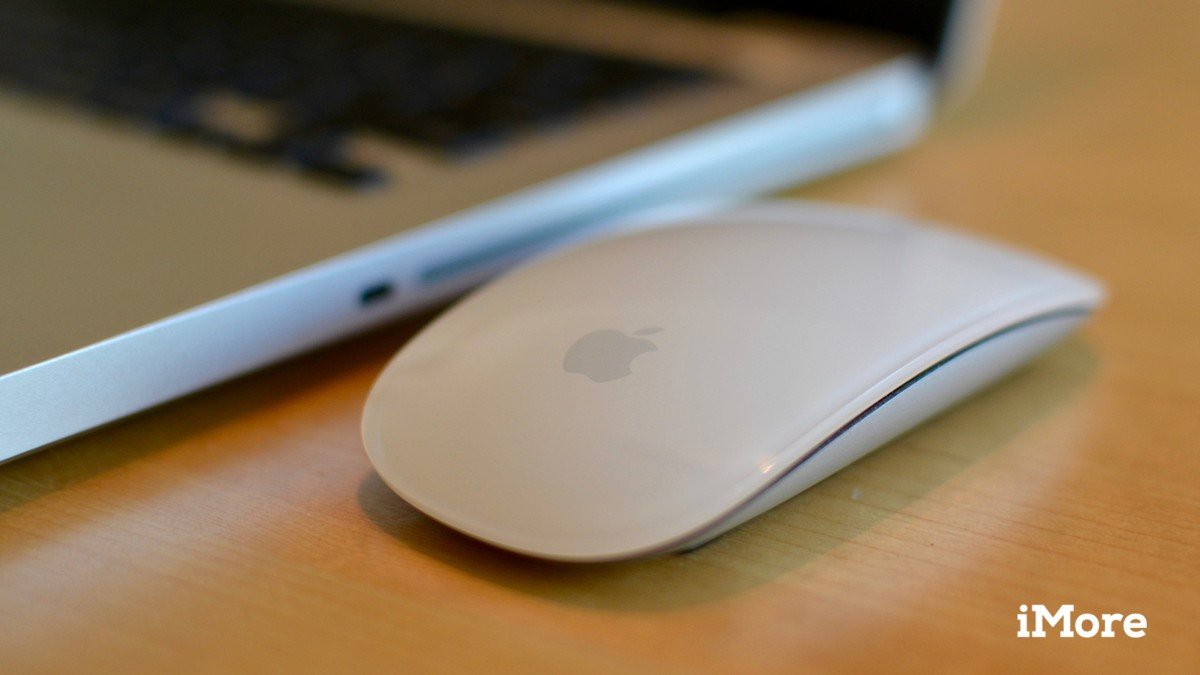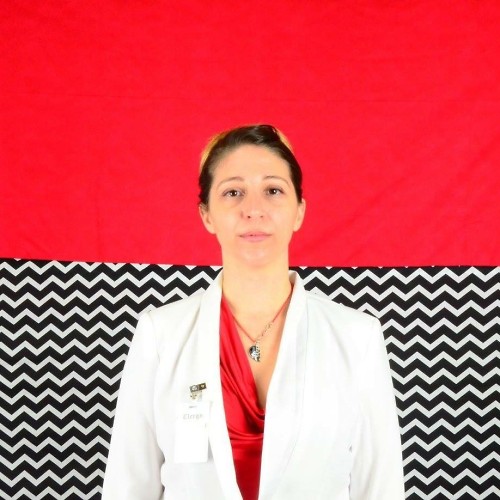Magic Mouse vs Magic Trackpad: Which should you buy?


Stationary clicker
With a large, nearly flat surface, the Magic Trackpad makes it incredibly easy to navigate your Mac's system with more gesture versatility. Use Force Touch to access Look Up for additional information.
For
- Larger surface
- Force Touch support
- Low profile design
- Comfortable clicking
Against
- Large footprint
- More expensive

Stationary hand
The Magic Mouse 2, which comes with every iMac, is perfectly suited to macOS. The multi-touch gestures make it ideal for quick pointer actions and the Mac's specific side-swiping features.
For
- Small footprint
- Free with Mac desktop
- Multi-touch surface
- Apple aesthetic
Against
- Not ergonomic
- Bad charging port placement
Both of Apple's branded computer navigation devices feature multi-touch gesture support. Both move the pointer around on your Mac, allow you to swipe up, down, left, and right, and have customizable settings to perfect your personal experience. The Magic Mouse is better for small spaces, while the Magic Trackpad is better for full gesture movement.
Magic Mouse vs. Magic Trackpad: What are the differences?

The most obvious difference between the Magic Mouse and the Magic Trackpad is ... well ... one is a mouse, and the other is a trackpad. With the mouse, you rest your hand on the curved surface and move your arm around to move the pointer up, down, to the left, and to the right. With the Magic Trackpad, you move the pointer around by swiping with one finger on the surface.
When considering which pointer peripheral you should have for your computing needs, think about how much space you have. Do you have room for a trackpad that is about 6 inches wide by 4.5 inches deep? If not, the Magic Mouse is better. Do you suffer from finger cramping when using a mouse, especially the pinky finger? A trackpad solves that stationary finger issue.
| Header Cell - Column 0 | Magic Mouse 2 | Magic Trackpad 2 |
|---|---|---|
| Battery life | 2 months | 1 month |
| Charging | Lightning | Lightning |
| Use while charging | No | Yes |
| Multi-touch | Yes | Yes |
| Force Touch support | No | Yes |
| Weight | 3.52 Ounces | 8.16 Ounces |
| Wireless | Yes | Yes |
| Bluetooth | Yes | Yes |
Magic Mouse vs. Magic Trackpad: Arm saving vs. space saving
If your desktop has room for a trackpad measuring about 6 x 4.5 inches, I highly recommend the Magic Trackpad. Personally, I find it the be more comfortable from an ergonomic standpoint. You don't keep your hand resting in the same place for long periods like you do on a mouse, which is overall better on your hands unless you're specifically using an ergonomic mouse. You don't have to move your whole arm around to move the pointer. With a mouse, your desk's surface (or a mouse pad) is what you use to move around on the screen. With a trackpad, your finger does the walking.
If you're limited by space, the Magic Trackpad may be too big for you if your desktop area is small. Sure, you need space to move the Magic Mouse around on, but there's a level of flexibility that doesn't exist with the Magic Trackpad. If you're using the Magic Keyboard with Number Pad, for example, on a keyboard tray, there may not be enough room on that tray for the keyboard and trackpad, but you could make it work with a mouse.
Plus, the Magic Mouse is more portable. You can lift it with the same hand you navigate, move it to a different surface, and continue clicking without missing a beat. You can shove it in your back pocket and take it with you on the go. The Magic Trackpad is a little too big to lift with one hand easily, and it definitely doesn't fit in your back pocket.
Magic Mouse vs. Magic Trackpad: Gestures vs. Force Touch

The Magic Mouse and Magic Trackpad support almost all of the same gestures, like swiping between pages and full apps, scrolling with one finger, and double-tapping to access Mission Control.
Master your iPhone in minutes
iMore offers spot-on advice and guidance from our team of experts, with decades of Apple device experience to lean on. Learn more with iMore!
The Magic Trackpad, however, has a couple more cool gestures, like pinch-to-zoom and image rotating.
The Magic Trackpad also supports Force Touch, which is sort of like 3D Touch on an iPhone. You click on the trackpad surface and then press down. You'll feel a second sort of click when it's been triggered.
Force Touch only accesses Quick Look and Look Up, which are nice additions but not overly helpful on Mac. Again, like 3D Touch on the Home screen, it's nice, but not anything that totally changes the way you use your Mac.
Magic Mouse vs. Magic Trackpad: Price
If you're buying a desktop Mac, and price matters the most, the Magic Mouse is a no-brainer. It comes with every Mac desktop. A Magic Trackpad will cost an additional $50. If you want both the Magic Trackpad and Magic Mouse, you'll pay a total of $129 for both. That's if you're buying a new Mac desktop.
If you're buying a Mac laptop or already have a desktop, the price of both goes up, but the Magic Trackpad is still more expensive than the Magic Mouse, and getting either in Space Gray will set you back an additional $20.
If your wallet is thin and saving money is your top priority, the Magic Mouse is the better priced of the two, especially if you're buying a Mac desktop because the price is zero extra dollars.
Magic Mouse vs. Magic Trackpad: Charging while working

With the Magic Mouse 2, Apple did this unusual thing and put the charging port on the bottom. This was likely the only place they could put the port and still keep the iconic low-profile design. It is, however, inconvenient, at best.
You can't use the Magic Mouse 2 while it's charging. You have to wait at least 15 minutes for it to juice up enough for you to finish your current project, and then you can plug it in for the night.
On the other hand, the Magic Trackpad can still be used while charging, so you never lose productivity while in the middle of something important.
Magic Mouse vs. Magic Trackpad: Bottom line
The Magic Mouse and Magic Trackpad are ideal on Mac because they support certain gestures that no other mouse or trackpad support. Either one is going to make you happy.
If I were to recommend one over the other, however, I prefer the Magic Trackpad. I have both and use them both interchangeably at my desk. I find the Magic Trackpad to be more comfortable, and the pinch-to-zoom gesture works with my personal workflow.
Lory is a renaissance woman, writing news, reviews, and how-to guides for iMore. She also fancies herself a bit of a rock star in her town and spends too much time reading comic books. If she's not typing away at her keyboard, you can probably find her at Disneyland or watching Star Wars (or both).

